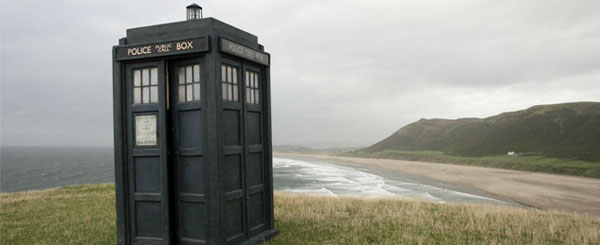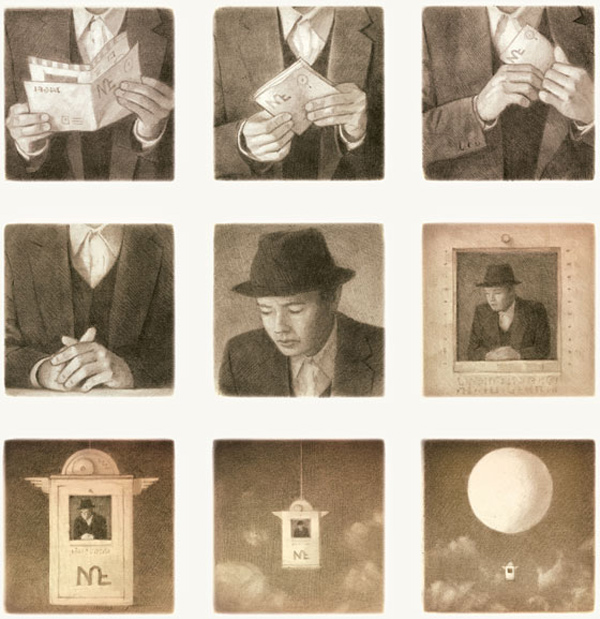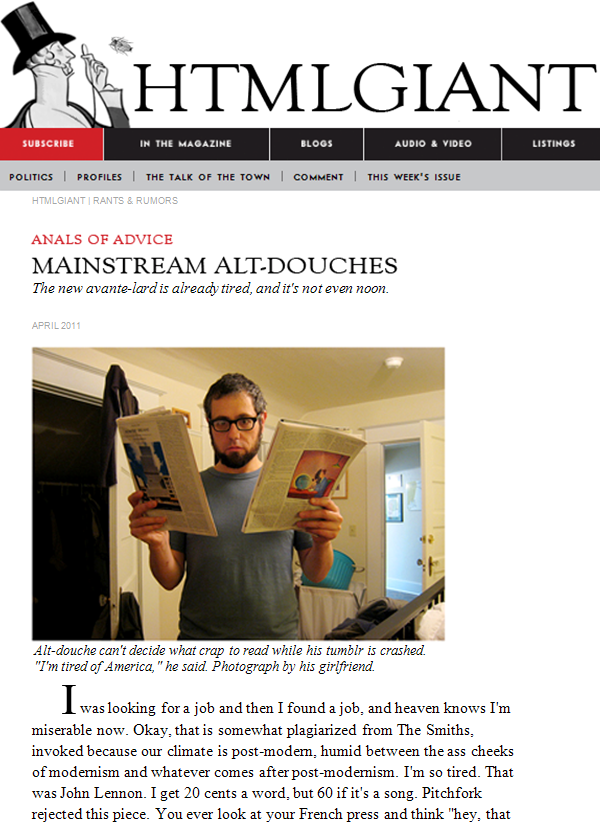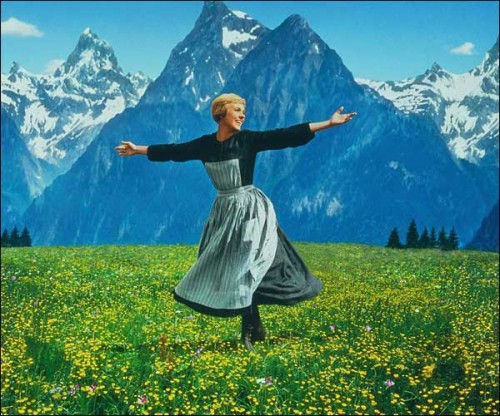Sometimes You Don’t Recognize What’s In Front of You Until A Writer Makes It Clear for You
 When I was a child, my father worked in air conditioning. I never thought that was a particularly high calling, even though we lived in Florida, in the heat, and even though I seldom felt the heat when I was indoors, since the default indoor condition of everything in Florida was cool, comfortable air, or sometimes air that was uncomfortable because it was too cold. I never figured out the value of what my father did until I read Arthur Miller’s essay “Before Air Conditioning.” Here is a representative paragraph:
When I was a child, my father worked in air conditioning. I never thought that was a particularly high calling, even though we lived in Florida, in the heat, and even though I seldom felt the heat when I was indoors, since the default indoor condition of everything in Florida was cool, comfortable air, or sometimes air that was uncomfortable because it was too cold. I never figured out the value of what my father did until I read Arthur Miller’s essay “Before Air Conditioning.” Here is a representative paragraph:
“Given the heat, people smelled, of course, but some smelled a lot worse than others. One cutter in my father’s shop was a horse in this respect, and my father, who normally had no sense of smell — no one understood why — claimed that he could smell this man and would address him only from a distance.”
The Poetics of Non-Arrival: KAFKA
“Am I a circus rider on two horses? Alas, I am no rider, but lie prostrate on the ground.”
–Franz Kafka in a letter to Felice Bauer, 1916
He was talking about the Jewish horse and the German horse
(But there is also the Czech horse.)
What horse did Kafka ride?
Where does Kafka belong?
Who owns Kafka? *
These sentences kill me.
Imagine: prostrate on the ground.
That’s what an exilic existence is like
Prostrate on the ground.
Living in the place that is no place
Riding the no horse
Going nowhere, only not-here
With no language
Never quite comfortable in any language. **
When the narrator in the story “My Destination” is asked where he is going
He says,
“I don’t know.”
“Away from here, away from here.”
“Always away from here, only by doing so can I reach my destination.”
Always away, never arriving. ***
Butler: “…the monstrous and infinite distance between departure and arrival….”
Kafka: “For it is, fortunately, a truly immense journey.”
.
.
.
NOTES
* [I love this essay about Kafka by Judith Butler.]
** [Butler: “We find in Kafka’s correspondence with his lover Felice Bauer, who was from Berlin, that she is constantly correcting his German, suggesting that he is not fully at home in this second language. And his later lover, Milena Jesenská, who was also the translator of his works into Czech, is constantly teaching him Czech phrases he neither knows how to spell nor to pronounce, suggesting that Czech, too, is also something of a second language. In 1911, he is going to the Yiddish theatre and understanding what is said, but Yiddish is not a language he encounters very often in his family or his daily life; it remains an import from the east that is compelling and strange. So is there a first language here?”]
*** [Kafka: “Written kisses don’t reach their destination, rather they are drunk on the way by the ghosts.”]
A reminder: The prayer-as-story, story-as-prayer web journal On Earth As It Is, which I edit with my buddy Bryan, is accepting submissions through April 30. The work we accept will make up the last round of weekly updates on the site. Submit here. (If you have any questions, leave them in the comments for this post and I will answer them as best I can.)
Shop of work, or something like that
So, I’m teaching a grad-level fiction workshop for the first time next fall. I’m excited and nervous. It feels like a big deal. In my pedagogical statements, I write about how many fiction students don’t know how to read. That is, they read like they’re lit majors: they read for analysis and to say something clever about the text. (I was no exception before and during my MFA.)
BUT, but, writers read in a fundamentally different way. We read with our own writing in mind: what works, what doesn’t, what should we take from this writer, what does this writer do that we also do that fails, etc.
My undergrad fiction workshops are always very reading heavy. We read something like 8-10 books. Every book comes with some kind of “craft” lesson. I attempt to teach students how to read as a writer. Mostly, it works.
Yet even the most explicitly political acts of data gathering and collecting, like WikiLeaks, can succumb to a contemporary ideology of the self-sufficiency of information.
persnickety 11 sleep chucks
8. Slate says DFW would not have sent Pale King to a publisher. Awkward analogy alert:
9. Now that Amanda Hocking has sold out to become a go-go-gillionairre, Forbes weighs in.
Nine. The new JMWW is out.
10. Kevin Brockmeier interview.
I broach my sentences one tiny piece at a time. That’s always how it is for me — slow and considered. I’ll work and work at one little cluster of words. Then, when its rhythms are in place, I’ll move on.
11. John Gardner Fiction Contest ends in 9 days.
12. Ever watched video of your own self reading? How did that go?
Another Kind of Reading List
I always enjoy the reading lists posted here because I like to see what other people read but I rarely see a lot of the books I like to read. Half the time I haven’t heard of most of the books people are talking about. I am finally done unpacking my new apartment, seven months after the move, and I looked at my bookshelves and thought I would make a list of some of my favorite books, the ones I like to read over and over, the ones I read to relax and think and day dream. Some are “literary,” and some are “mass market,” but I don’t really think about books in those terms. I like good stories and these books all tell damn good stories. What are some of the books you love but rarely find on other people’s reading lists?
Drop it like it’s shottttttttttttttttttttttttttttttttttttttttttttttt

People like to be entertained. They like to have something happen in front of them that makes them feel like they were there, saw something, can remember it thereafter. It’s a function of the fact that most of the time spent on the air occurs without definitive sequence or direction, at least not one that appears until the thing is over. This appearance of the sequence after the sequence has been completed is true of human lives, regardless of how directionless they may seem while they are going on, but it is also true of something like a table: a thing that does not move, exerts no proper influence. The story of any table, in its not moving, likely has more motion to it than a lot of things that traditionally exert arcs, such as a sitcom or a ballgame.
It is impossible for nothing to happen, really. The sentence “Orb fell through water.” exerts no definitive narrative product, but does show motion, and contains numerous hidden elements, i.e.: what is the orb? why did it fall? Many would expect then the orb to have a reason for falling, a product of its hitting the water, a cause and effect. But what if the orb is never mentioned again? Does this mean nothing happened? Could the appearance of the orb and subsequent lack of resolution thereby inscribe in the motion of whatever came after it, say “Days slurred numbers in a holy walk.” Is the orb in the days, slurring the numbers; why? Does the orb’s minor appearance lose its motion in not returning, the way a dog might pass your window? Obviously I think no, and some would argue that even if it doesn’t lose its motion fully it could have more presence by returning, but which is more masturbatory? Masturbation, often an ideological anathema to narrative wanting, seems defined by its repetition, by its return again and again to a familiar stroke, with a final climax that has no question. Sex, the stuff of most here’s-how-we-keep-you-interested,-by-having-all-the-characters-fuck-all-the-other-characters-and-or-die-one-by-one-style media, holds the relic of passing time, in the name of pleasure, such that at the end of it there is a thing on the floor and a happy body and a readiness to go to sleep.
I won’t say anything directly about America here, about how we are encouraged to go to sleep, because one of the functions of America is to make that argument sound like a supposed stroke in the supposed massive aesthetic jack off of “resolutionless art” that is actually perpetrated in the meat and bones of everything that has put us politically and culturally, on a majority scale, in the joke box of history.
At the Awl, a comprehensive post re: David Foster Wallace’s private self help library.




